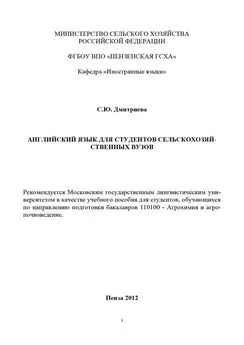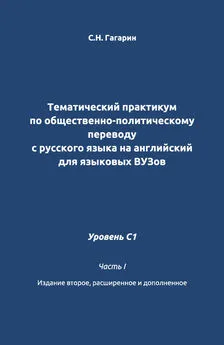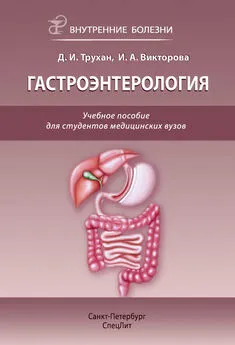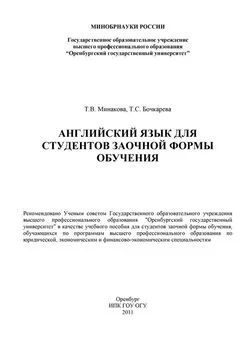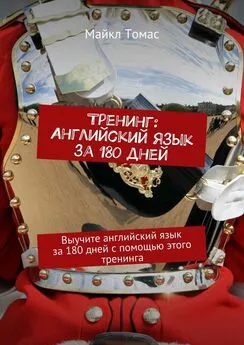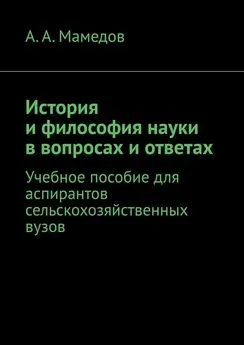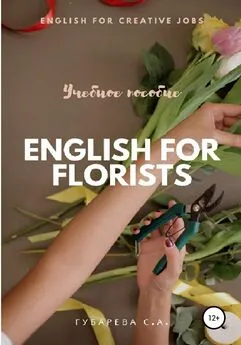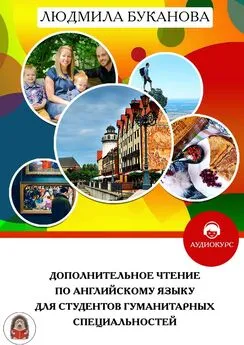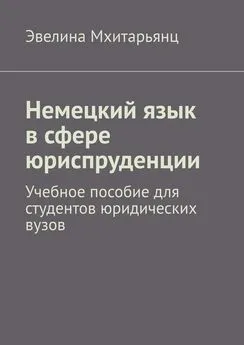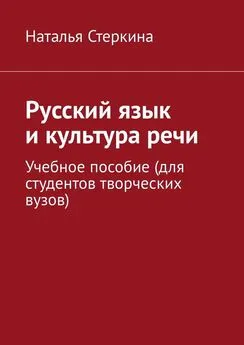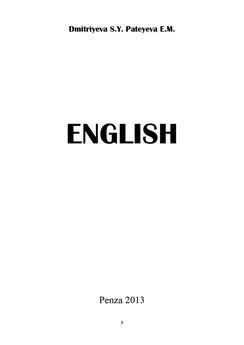Светлана Дмитриева - Английский язык для студентов сельскохозяйственных вузов
- Название:Английский язык для студентов сельскохозяйственных вузов
- Автор:
- Жанр:
- Издательство:Литагент БИБКОМ
- Год:2012
- ISBN:нет данных
- Рейтинг:
- Избранное:Добавить в избранное
-
Отзывы:
-
Ваша оценка:
Светлана Дмитриева - Английский язык для студентов сельскохозяйственных вузов краткое содержание
Английский язык для студентов сельскохозяйственных вузов - читать онлайн бесплатно ознакомительный отрывок
Интервал:
Закладка:
Разделительный вопрос(Disjunctive question) это вопрос, состоящий из двух частей всегда противоположных друг другу (первая часть – утвердительное или отрицательное предложение, вторая ( Question tag) – переспрос, состоящий из вспомогательного глагола и личного местоимения, заменяющего подлежащее. Переспрос переводится: «не так ли?»). E.g. You don’t like winter, do you? He was there, wasn’t he?
Exercise 2. Put a question tag at the end of each sentence.
1) Ann’s on holiday, …
2) You weren’t listening, …
3) Sue doesn’t like onions, …
4) Jack applied for the job, …
5) He won’t mind if I come early, …
6) He had not seen her before, …
7) She is right, …
Порядок слов в вопросительном предложении
Порядок слов в вопросительном предложении определяется одной схемой, независимо от временной формы глагола-сказуемого.
Рассмотрим пример: We borrow books from the library.

Exercise 3. Put questions of different types to the sentences.
1) He is in the room. 2) We like holidays. 3) They are buying a new computer. 4) She has got three sisters in Moscow. 5) They are not ready today. 6) My flat is on the second floor. 7) Ann didn’t see my report. 8) We see many books on the shelves. 9) Every week Dan writes a letter.
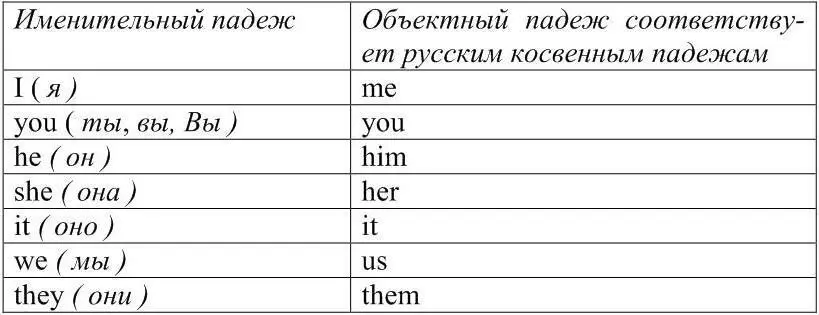
В английском языке глаголы to be, to have, to do являются многофункциональными.

Следует помнить, что модальные конструкции: to be to, to have to имеют одинаковое значение должен, однако с разными оттенками долженствования. E.g. I am to go there. –Я обязан ( должен по плану, по договорённости) поехать туда. I have to go there. –Я вынужден поехать туда ( должен вместо Н., который заболел ).
1 1 Новое в грамматике современного английского языка Г.А. Вейхман, Москва, «Астрель», 2002
Форма have без got и do сохраняется в устной и письменной формах официально-делового стиля. Например:
Haveyou an appointment?
Однако неосложненное have постепенно вытесняется формами с got и do.
Например:
Haveyou got the money? ( обладание)
Doyou have the money?
I ’ve gota new car.
She hasn’t gota car.
He has gota brother. ( родственные отношения)
I have ( got) a cold. –Я простудился.
He has an appointment. –У него назначена встреча.
He has a lesson. –У него занятие.
He has breakfast ( dinner, lunch, …) at 7. – Он завтракает в 7.
to have a swim ( a bath, a shave, a sleep, a day off, a nice evening, a walk, a shower, a rest, a dream, a holiday)
She has a baby. –У нее родился ребенок.
I’ve got an idea. –У меня есть идея.
Вопросы с этими сочетаниями бывают только с do, did.
Eg. Did you have a good holiday?
Exercise 1. Use: am, is, are.
1) He … a student. 2) You … French. 3) I … a teacher. 4) It … a car. 5) Nick … from Glasgow. 6) Ann … a doctor. 7) We … to go there. 8) He … sleeping now. 9) We … in Moscow now. 10) They … invited to the party. 11) Ann … to learn the poem.
Exercise 2. Use: have (got), has (got).
1) We … many relatives in Moscow. 2) They … to study many subjects. 3) She … a good computer. 4) I … done the work. 5) Linda … a brother. 6) David and Mike … to correct all their mistakes. 7) Nick … to water plants. 8) I … a good day.
Exercise 3. Use: do, does.
1) … you like this book? 2) We … this work together. 3)You … not play tennis. – But I … 4) He … his work on time. 5) Julia and Ann … like my cooking! 6) My brother … not want to live in a noisy street. 7) His dog … not play with mine.
Exercise 4. Use: I, you, he, she, it, we, they. Sometimes several variants are possible.
1) … am speaking now. 2) Where are Kate and Jane? … are playing volleyball in the park. 3) … don’t like rain. … brings me in a bad mood. 4) … is not late. … is on time. 5) What color is your new car? – … is white. 6) … have to work in the garden today. 7) … am to stay at home on Sunday. 8) … are to go to Moscow this week. Are … going with us? 9) Mary is playing the piano. … is a good musician.
Exercise 5. Point out the functions of the verbs to be, to have, to do. Translate the sentences.
1) I don’t play chess well. 2) He is an engineer. 3) She has to work this Saturday. 4) We have got a new car. It is blue. 5) Pete is in London. He is to make a report about an agricultural exhibition. 6) Sorry, we are late. 7) They did win all the matches! 8) Why don’t you visit him? 9) He doesn’t do his work. He is in hospital. 10) We have to correct this mistake immediately. 11) Her car is broken. 12) Thanks for everything – we had a great time. 13) Have you ever had your own business? 14) She didn’t pay cash, did she? 15) Let’s have a look at it.
Exercise 6. Translate the sentences.
1) Он не инженер. Он студент. 2) Нам придётся сделать это самим. 3) – Вы делаете утреннюю зарядку каждый день? – Да. 4) – Что она сейчас делает? – Она рисует. 5) – Где ваша машина? – Она в гараже. 6) – У него есть брат? – Нет, у него есть сестра. 7) Тебе предстоит поехать туда. 8) Как у тебя дела? – Хорошо, спасибо. 9) Кто она по профессии? – Повар. 10) – Ты не любишь зиму. – Очень люблю. 11) Она действительно учится водить машину ( to drive a car ).
Exercise 7. Some sentences are wrong. Correct them.
1) I had a garden big near my house.
2) She have a new neighbour.
3) Their house are not very large.
4) We always do our work well and in time.
5) We are to cook dinner.
6) He has to stay at home yesterday.
7) Lived I at the hotel.
8) It is cold, is it?
9) Baltimore is not far from Washington.
10) Be quiet!
11) You knows as much as I do.
12) Who has eaten all the grapes?
LESSON 2
Task 1. Answer the questions.
1) Do you live with your family?
2) Is your family large?
3) How many people are there in your family? Who are they?
4) Do you have any brothers or sisters?
5) Who is the youngest in your family?
6) Who do you look like?
7) Have you got a pet?
8) What is your brother’s (sister’s) hobby?
9) What is your mother’s (father’s) occupation?
 Task 2. Interview your groupmates. Find someone in your group whose family is large, ( whose mother’s name is Mary, whose father is a doctor, who has relatives abroad, whose hobby is cooking ).
Task 2. Interview your groupmates. Find someone in your group whose family is large, ( whose mother’s name is Mary, whose father is a doctor, who has relatives abroad, whose hobby is cooking ).
Use the phrases:– May I ask you a question?
– Yes, certainly
– Have you got… ( What is your …? What is … hobby?)
– Really?
Task 3. Complete the table.

 Task 4. Memorize the following words and phrases:
Task 4. Memorize the following words and phrases:
1. relative[΄relətiv] – родственник; distant/close[΄distənt] [kləus] дальний/близкий
2. to be married[΄mærid] – быть замужем (женатым)
3. to get married –пожениться
4. to be single[΄siŋgl] – быть не замужем (не женатым)
5. to follow family customs [΄k٨stəmz] – соблюдать семейные традиции
6. to take after his (her) mother (father) in character– унаследовать характер матери (отца)
7. to look like smb. –быть похожим на …
8. close –дружный
9. to be bossy[bosi] – любить командовать, быть властным
10. old-fashioned[΄əuld΄fæ∫ənd] – старомодный, старинный
11. to earn[ə: n] money[΄m٨ni] – зарабатывать деньги
12. to take care[kεə] of –заботиться
13. to keep a family –содержать семью
14. to keep house –вести хозяйство
15. leisure[΄leʒə] – досуг; at leisure –на досуге
16. to bring up children –воспитывать детей
17. to spend time(spent, spent) – проводить время
18. mutual[΄mju:tʃuəl] respect –взаимоуважение; to respect– уважать
Читать дальшеИнтервал:
Закладка:
